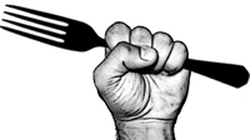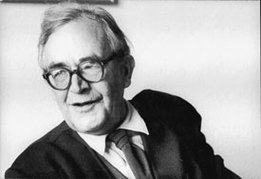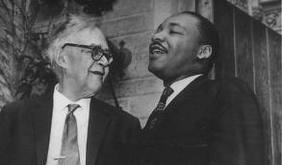|
5/31/2012 Comments Food as Spiritual and Political Praxis Part 2: Continuing the Conversation between Autumn Brown and Nekeisha Alayna Alexis
 Nekeisha’s note: As Autumn and I engaged in our first intentional exchange about the political and spiritual dimensions of our food choices, we realized that we not only had more to ask and to share than one post could reasonably contain: we also enjoyed our engagement with each other and wanted to more deeply understand the ways our food, politics and faith shaped our divergent eating practices. So we agreed to continue the conversation using the same question and answer model with which we began. Below is our second and final exchange for Jesus Radicals. Autumn: Since I touched on this in my last response, I would return to the question of desire and survival. In our previous conversations, you have indicated that you believe eating meat is only acceptable if it is deemed necessary for survival. In my mind, this sets up a dichotomy of desire vs. survival in which desire is strongly associated with sin. I tend to be wary of direct associations between desire and sin because the church has a nasty history of instilling this kind of belief with psychologically and physiologically destructive consequences to human individuals and families. And while there are traditions within the church of fasting from meat at certain times, my theological study has led me to the understanding that scriptural and patristic teachings with regard to diet are usually about self-denial or mindfulness rather than the assertion that the practice of meat-eating is itself sinful. In your experience and beliefs, what specifically about desiring meat is problematic from a spiritual, theological or scriptural perspective?
Comments
5/23/2012 Comments Prayer as Resistance, Part 2
 Karl Barth once said “the clasping of the hands in prayer is the beginning of an uprising against the disorder of this world.” In this two part essay I talk about Barth’s understanding of prayer as a form of Christian resistance. Part one described Barth’s understanding of Christianity as resistance. Part two will now describe how Barth understands prayer as a form of resistance. Barth wrote over 500 pages on prayer alone. It has a significant place in every volume of his Dogmatics. It is also crucial to his ethics in that Barth roots human freedom in the practice of prayer. Prayer is the human action that declares God’s freedom as primary and human freedom as a response to God. Prayer is how we enter into God’s freedom and follow it into the world. When we pray we take up a posture that reveals our true humanity, uniting what we do with who we are. Barth’s makes the forceful claim that “prayer is literally the archetypal form of all human acts of freedom in the Church, and as such it must be continually repeated in all other acts of freedom.”1 5/18/2012 Comments Prayer as Resistance, Part 1
 Karl Barth is reported to have once said “the clasping of the hands in prayer is the beginning of an uprising against the disorder of this world.”1 In this two part essay I will talk about Barth’s understanding of prayer as a form of Christian resistance. Barth (1896-1969) was the most prolific and influential Protestant theologian of the twentieth century. I will not attempt to introduce him here. But I hope that what I have written will be accessible and helpful even to those who have only read a little of Barth or never read him at all (or perhaps even heard of him!). Whether we are interested in Barth or not, the central issue for this essay is significant for everyone. How do we understand the relationship between our private and public lives as followers of Jesus? How is spirituality related to politics? What does prayer have to do with resistance? I find Barth’s thoughts on this to be a compelling proposal for thinking about the unity of prayer and politics. Rather than understanding prayer as a withdrawal from the public square perhaps we should understand prayer as a primary form of worldly engagement. Part one will describe Barth’s understanding of Christianity as resistance. Part two will then describe how Barth understands prayer as a form of resistance. |
Disclaimer
The viewpoints expressed in each reader-submitted article are the authors own, and not an “official Jesus Radicals” position. For more on our editorial policies, visit our submissions page. If you want to contact an author or you have questions, suggestions, or concerns, please contact us. CategoriesAll Accountability Advent Anarchism Animal Liberation Anthropocentrism Appropriation Biblical Exegesis Book Reviews Bread Capitalism Catholic Worker Christmas Civilization Community Complicity Confessing Cultural Hegemony Decolonization Direct Action Easter Economics Feminism Heteropatriarchy Immigration Imperialism Intersectionality Jesus Justice Lent Liberation Theology Love Mutual Liberation Nation-state Nonviolence Occupy Othering Pacifisim Peace Pedagogies Of Liberation Police Privilege Property Queer Racism Resistance Resurrection Sexuality Solidarity Speciesism Spiritual Practices Technology Temptation Veganism Violence War What We're Reading On . . . White Supremacy Zionism ContributorsNekeisha Alayna Alexis
Amaryah Armstrong Autumn Brown HH Brownsmith Jarrod Cochran Chelsea Collonge Keith Hebden Ric Hudgens Liza Minno Bloom Jocelyn Perry Eda Ruhiye Uca Joanna Shenk Nichola Torbett Mark VanSteenwyk Gregory Williams Archives
October 2017
|
Search by typing & pressing enter

 RSS Feed
RSS Feed